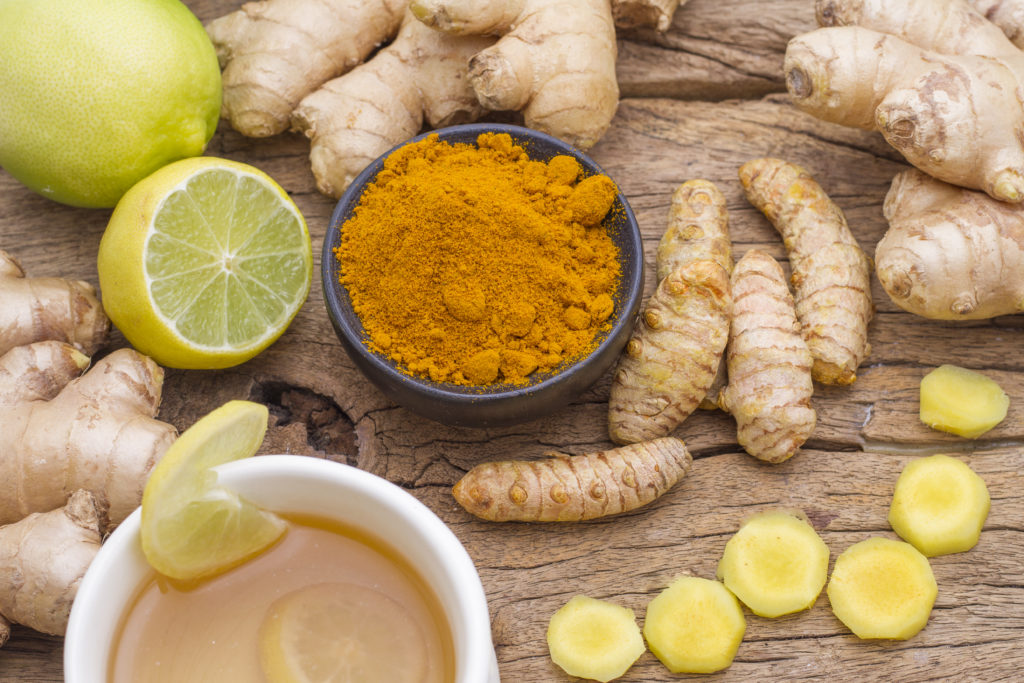If there’s one thing I see a great deal of in my chiropractic clinic in Anchorage, Alaska, its chronic pain. Whether it’s joint pain, the pain of arthritis or fibromyalgia, or low back pain, what they all have in common is inflammation.
What Is Inflammation?
Many people think of inflammation as a bad thing, but in truth it’s a natural response from the immune system that helps protect it from further harm.
There are two types of inflammation: acute and chronic. Almost everyone is familiar with acute inflammation after cutting a finger. The swelling, redness, and tenderness are all signs of inflammation. The immune system sends out white blood cells to fight infection and protect the area until it can heal.
Chronic inflammation is also a response to damage or unwanted compounds in the body. Toxic smoke can cause inflame the lungs temporarily, but smoking cigarettes daily causes chronic inflammation.
A buildup of fat, especially around the liver or in the abdominal cavity, or of plaque inside the walls of the artery, also causes chronic inflammation.
Unlike acute inflammation, chronic inflammation is one of the main drivers behind many types of health problems and conditions, including asthma, Crohn’s disease, IBS, osteoarthritis, heart disease, and more.
Risk Factors
Our environment no doubt plays a role in the development of chronic inflammation. However, a poor diet, lack of exercise, stress, and lifestyle factors such as smoking and heavy drinking can all lead to low-grade chronic inflammation.
Diet: Still Our Best Medicine
Hippocrates said we should let food be our medicine and medicine be our food. I’m a firm believer that an anti-inflammatory diet does better than most pharmaceuticals on the market.
What is an anti-inflammatory diet? It’s the same old healthy diet plan we’ve been hearing about for years, with perhaps a few, small changes.
I always recommend that my clients eat as many anti-inflammatory foods as possible. This would include plenty of the following:
- Cold water fish (salmon, tuna, herring)
- Avocados
- Cruciferous vegetables (broccoli, cauliflower)
- Red and purple produce (cabbage, watermelon, berries, tomatoes)
- Nuts and seeds (especially walnuts)
- Whole grains
- Olive, avocado, walnut, and coconut oil
- Onions (all colors)
- A rainbow of fruits
- Spices (cinnamon, ginger, turmeric, oregano, cloves, cayenne)
Why I Recommend Supplements
While diet can go a long way towards eliminating inflammation and therefore pain, not everyone can take advantage of these anti-inflammatory foods.
People with IBS, for example, often must avoid foods such as cabbage, onions, and cruciferous vegetables that cause bloating and gas. And although it’s hard to believe, some people simply don’t like fish and won’t go near it. Other people have food allergies and must avoid nuts, grains, and/or seeds.
For my patients who cannot eat some of the foods in the anti-inflammatory diet, I often recommend the following list of ten highly effective anti-inflammatory supplements. These killer supplements are in my top ten because I’ve seen for myself how they lower inflammation and reduce chronic pain levels among the patients in my own practice.
Top 10 Anti-Inflammatory Supplements 
#1. Curcumin (Turmeric)
This herb is related to ginger and has been used in Ayurvedic medicine for thousands of years. One study recently published in July 2018 found that curcumin had anti-inflammatory and vasoprotective effects in mice. However, though eating curry sauce is great, it doesn’t offer enough curcumin to do the job. I recommend two grams per day to help fight inflammation and chronic pain.
#2. Nutmeg
Who would have thought that this common cooking spice was an anti-inflammatory? It’s been used for centuries as medicine in many other parts of the world. In one study from April 2016, not only did nutmeg work as an anti-inflammatory agent in rats with chronic pain due to inflammatory disease, but it also had an analgesic effect. The rats were given nutmeg oil, which can be found in supplements. But it tastes so great that I encourage my patients to use the spice liberally.
#3. Fish Oil
Fish oil is well-known for the many good things it can do for the body, especially regarding the heart and brain, but not as many of us are aware of its powerful anti-inflammatory properties. The DHA in fish oil contains the anti-inflammatory compounds, and the great thing about fish oil is that you can get it from eating salmon three times a week or from taking supplements, whichever you prefer. (Personally, I’ll take the salmon for lunch, thank you.)
#4. Tulsi
Sometimes called holy basil, this herb has been used in Ayurvedic medicine for centuries. It’s high in antioxidants, which provides the anti-inflammatory compounds. A 2005 study found that tulsi was very high in antioxidants that don’t break down easily.
#5. Cat’s Claw
The anti-inflammatory with the cute name! Cat’s claw comes to us courtesy of Peru, and some studies have shown it to be so powerful that it helped stopped inflammation in those with gastritis and osteoarthritis.
#6. Cinnamon
Loved all over the world for its flavor, cinnamon has only been studied recently for its anti-inflammatory compounds and its ability to lower blood sugar levels. This 2008 study found that even cinnamon essential oil worked as an anti-inflammatory. I recommend that my patients add cinnamon to their coffee or tea, sprinkle it on their muffins, and use it wherever else they can think of.
#7. Magnesium
Did you know that most Americans are magnesium deficient? Our produce used to be rich in this vital compound, but our soils have been depleted. Another issue is that magnesium is poorly absorbed by the body. I often suggest my patients add Epsom salts to their baths water since these aren’t really salts but magnesium flakes. Magnesium is easily absorbed through the skin and makes you feel great after a nice soak.
#8. Green Tea
I must admit that I’m not a fan of green tea, but it has so many health benefits, it’s hard to find a reason not to drink it. This review of medical studies on the effects of green tea show that it contains special catechins that can treat metabolic syndrome and fight obesity. The catechins also have powerful anti-inflammatory agents. Thank goodness it comes in supplement form because you need five cups of green tea a day to reap the full benefits.
#9. Ginger
At the risk of this list sounding like a cooking class, I had to include ginger. Multiple studies show that not only is ginger a powerful anti-inflammatory, but it can also help prevent brain diseases such as Parkinson’s, Alzheimer’s, and multiple sclerosis. Ginger makes a great tea that warms the body, and it can be used in numerous recipes (although supplements work for those who don’t like the taste).
#10. Walnut Oil
Very few people seem to know about walnut oil, but I recommend it to those who enjoy cooking. It’s a terrific anti-inflammatory and tastes darn good on salads. This 2018 study backs up the claims that walnut oil has strong antioxidant compounds, fights inflammation, and even protects our DNA from damage. Walnuts have so much to offer us in the way of health that it’s no wonder it’s one of the most popular nuts in the world.
Of course, if you’re taking any prescription medications or are under a doctor’s care, please consult with your physician before consuming any supplements or making any changes to your diet.
Images from iStock/Stefano Spicca (main image), alexander ruiz (post).




Maria Atwood, CNHP, asked me to post this comment on her behalf:
Dear Doctor:
I was truly impressed with your latest blog post here. It was by far the best article on anti-inflammatory foods that are also pain relivers that I’ve seen. I too hope to be writing a blog post on pain and will surely be using portions this blog post in my own article, and will point back to this article. Thank you for the great suggestions and since I am now experiencing a serious ear infection with lots of pain, it is ever more appreciated.
Maria Atwood, CNHP